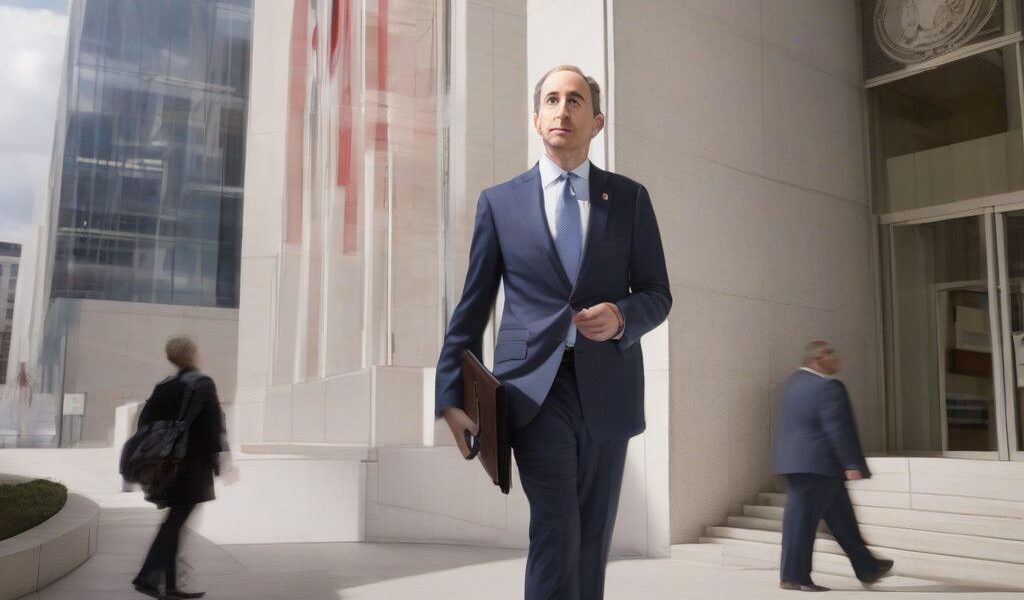The Future of Regulation: A Look Ahead After Gary Gensler's Departure from the SEC
As Gary Gensler prepares to leave his role as the chair of the U.S. Securities and Exchange Commission (SEC) in January 2025, the financial landscape, particularly around cryptocurrencies, is poised for significant changes. Gensler has been a formidable figure in regulating the cryptocurrency market, known for his stringent, no-nonsense approach to ensuring compliance among digital asset firms. With over 100 enforcement actions against entities he deemed to be operating as unregistered securities, his tenure has been marked by an aggressive stance on regulation—a marked contrast to what is anticipated under the incoming administration of President-elect Donald Trump.
Gensler’s regulatory strategies stemmed from a desire to introduce clarity and legality to an industry he described as fraught with risks—a sector with nearly 10,000 unregistered securities. Such a regulatory landscape raised the crucial question: how can investors be best protected in an evolving financial environment?
With Trump’s inauguration, a shift towards a more crypto-friendly regulatory framework seems imminent. Trump has consistently positioned himself as a proponent of cryptocurrencies, aiming to transform the U.S. into the “crypto capital of the world.” The potential appointment of a new SEC chair who advocates for augmented leniency towards crypto policies signals a departure from Gensler’s strict oversight. Among those being considered for the role is Summer Mersinger, a Republican commissioner from the Commodity Futures Trading Commission (CFTC), known for her advocacy of less rigid crypto oversight.
The implications of this transition can potentially reshape the engagement between regulators and the burgeoning cryptocurrency sector. Supporters of lenient regulations argue that overregulation stifles innovation in an industry that could lead the way for economic growth and technological advancements. Conversely, critics warn that loosening regulations could pose risks to investors, particularly novices who may not fully understand the complexities of digital assets.
Additionally, the SEC is not the only regulatory body undergoing changes. Gensler’s departure follows the resignation of Gurbir Grewal, the SEC’s chief enforcer, known for his stringent oversight. Both departures may indicate a new era for the commission, one that seeks to encourage innovation while balancing the need for sufficient consumer protections. This is crucial, as the complexity of cryptocurrencies can often confuse investors, leading to potential financial losses in a largely unregulated market.
A focus on a regulatory environment conducive to crypto innovation could foster a landscape where traditional financial institutions and startups innovate together, opening the door to fresh collaboration opportunities. Already, several major banks and financial institutions have expressed interest in exploring blockchain technologies and digital currencies. This interest may be exacerbated by an easing of regulatory pressures, providing more room for experimentation without immediate fear of rigorous scrutiny.
However, striking the balance between fostering innovation and ensuring investor protection remains pivotal. Proponents of stronger regulations highlight the volatility and unpredictability of cryptocurrencies as grounds for rigorous oversight to prevent fraud and abuse. The question remains: how can the SEC ensure a level playing field where both innovation flourishes and consumers remain secure?
As the transition period unfolds, the direction that Trump’s administration takes regarding cryptocurrency regulations could redefine the market significantly. Stakeholders across the spectrum—from retail investors to large institutional players—will be keenly watching for indications of how the new leadership approaches regulations.
In conclusion, Gary Gensler’s exit may symbolize not just a change in personnel but a broader ideological shift surrounding cryptocurrency regulation in the U.S. The incoming administration’s promise to adopt a more lenient approach may excite many within the cryptocurrency space, yet it is crucial that regulators maintain a vigilant stance to protect investors amidst technological progress. The balance struck in the coming months will set a precedent for how digital assets are viewed and regulated for years to come.








